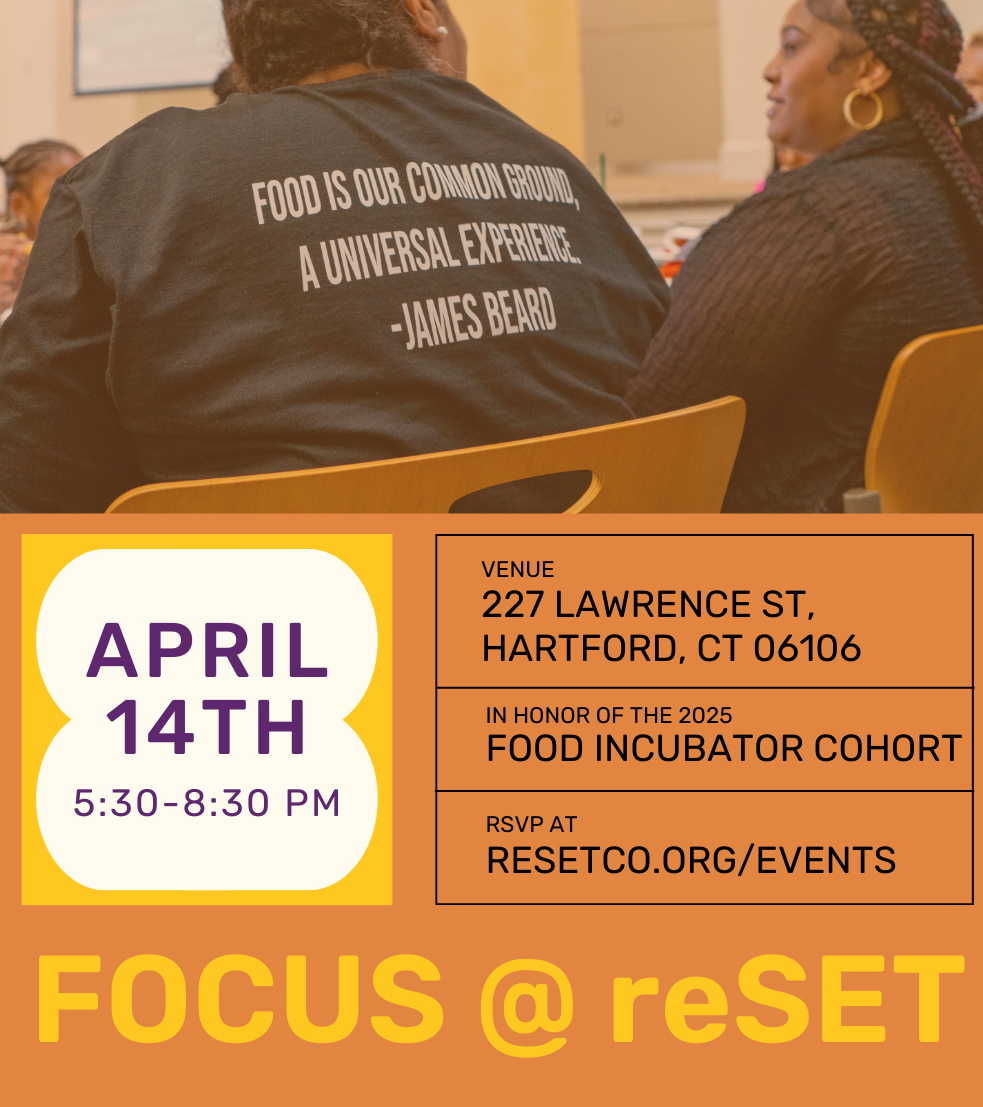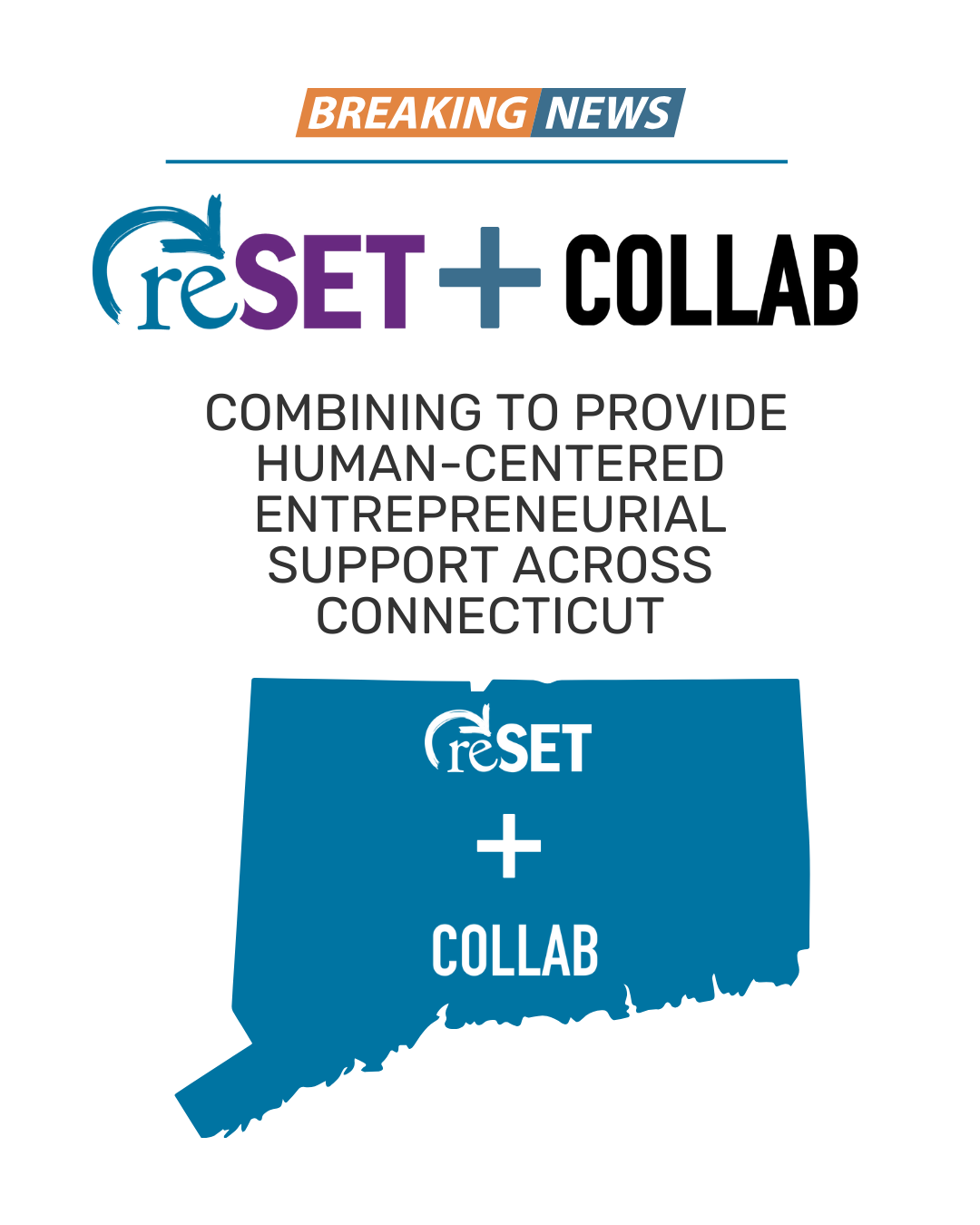This blog series, posted in partnership between HYPE and reSET, offers a platform to showcase the commitment that Hartford entrepreneurs have for their work and this city. It examines how entrepreneurs have chosen their work, and provides examples of the ways in which they are having an impact in Hartford. In this edition, we interviewed Bashaun Brown of T.R.A.P. House.
1. Please tell us a bit about yourself and your business partners.
My name is Bashaun Brown and I’m the CEO and co-founder of T.R.A.P. House. A “TRAP House” in its original context is a place where you can go to score or sell drugs. My colleagues and I have reappropriated the term. So T.R.A.P. now stands for T ransforming, R einventing, A nd P rospering. We work in Hartford and help people [existing and former drug dealers] realize their passion and their entrepreneurial spirit, so they can redirect it in a formal market.
The business was birthed in my prison cell as I was serving a 7 1/2 year sentence. I started thinking about ways I could give back to my community, and how I could be part of the solution and not the problem. I came across a term called “social entrepreneurship,” used by Kate Emery, the CEO of reSET as she was giving an NPR interview. While hearing about this different way of doing business, a lightbulb went off in my brain, and the foundations for T.R.A.P. House and the “New Hustle” began to be laid.
Fast forward to when I was released from prison in July 2009 and I was sent to a halfway house in Middletown, CT. It was about a mile from Wesleyan University. I had a connection to the school through the Wesleyan Center for Prison Education, where I was a student for four of the years I was incarcerated. The Center offers high quality liberal arts education to inmates in Cheshire Correctional Institution. During that time, I earned 16 classes worth of credit that I could transfer to any university of my choice. I went to Wesleyan under the guise of continuing my education once I returned from prison. During one of my visits to the school, I met Makaela Kingsley, the director of the school’s Patricelli Center for Social Entrepreneurship. She loved the idea of T.R.A.P. House and so we started fleshing out the concept. Two Wesleyan students, Gabe Weinreb and Irvine Peck’sAgaya, found the venture to be an interesting idea and reached out to begin working with me, and we’ve been the T.R.A.P. House team ever since, tirelessly working to implement social and economic good in Connecticut.
2. Why did you decide to be based in Hartford?
Hartford is a special place. I feel the people here are very resilient, especially the people I deal with, mainly in the North End of Hartford. Even though I grew up in New Jersey, a lot of my family is from Hartford.
Geographically , we’re positioned 100 miles away from Boston and 100 from New York City. We’re dead in the center of this amazing educational corridor comprised of Yale, Harvard, Wesleyan, UCONN, Trinity, and countless other wonderful institutions of learning. At T.R.A.P. House, we have seen our work flourish most when we bridge the academic and business communities in the context of our social enterprise. We try to use that synergy to create impact in communities that don’t necessarily receive the type of attention they need. We have a lot of minds at these schools that are thinking theoretically about how to help these populations and how to implement social justice. But there’s a gap between theory and practice. So my role, along with the rest of the T.R.A.P. House team’s, is to be the bridge between the world of formal entrepreneurship, the academic world of theory, and those who would benefit most from a second-chance society grounded in entrepreneurship. Together, we can reach people that aren’t normally considered entrepreneurs but who do have the savvy, and collectively reap the benefits from guiding these individuals into the formal market.
3. How do you think your work impacts the community and vice versa?
Being in our first stage of operation, it is hard to pinpoint exactly where the seeds of our impact will flourish. In the meantime, we are trying to be as multi-faceted in our efforts as possible, reaching underserved communities in Hartford in myriad ways.
We launched our summer program by hosting a Startup Day at Our Piece of the Pie, a local youth development agency in Hartford, and welcomed future entrepreneurs and their families to a business pitch competition. The competition provided a space for budding entrepreneurs to communicate their ideas to a group of like-minded people, and workshop these ideas with our network of mentors, who were professionals spanning the worlds of finance, marketing, social entrepreneurship, academia, and more traditional entrepreneurship. At the end of the day, all who entered the competition presented a business pitch to all in attendance (family and friends, mentors, and T.R.A.P. House team members) and from these contestants, we chose a cohort of businesses to work with during the summer and help with startup tasks and capital. Startup Day was a community event by nature. Many in attendance said that it was the first time that they had ever been afforded such attention and support for their business ideas.
As we continue to work with the cohort of winners from Startup Day in establishing their businesses, we have invited all who participated in the the event to our Saturday workshop series, where we share knowledge about formal entrepreneurship and its vocabulary, and also assist directly in formulating business plans and pitches. Startup Day, along with the workshop series, has not only had direct impact in the lives of the people we are working with this summer but has also had residual effects that remain to be seen. We want to build a stable network of businesses that wastes no human resource in Hartford.
4. What words of wisdom would you give to aspiring entrepreneurs who may be hesitant to take the plunge into entrepreneurship?
The advice I’d give to anyone returning home from prison and who can’t figure out what they’re going to do, is to look into entrepreneurship as a way to control their own destiny. Get to that place of independence so you don’t have to worry about someone finding it in their heart to give you the opportunity you feel you need to work. Create that opportunity for yourself . There’s nothing like using your brain to figure this “thing” out. Because figuring this thing out is the most important thing you can do. And once you figure out that you have the mindset to be an entrepreneur, never look back. Just jump into the game. You’ll fall, but you’ll get back up and at least you’ll be running in the right direction.
Baked into the design of T.R.A.P. House is a desire to slow down mass incarceration from the supply side. For too many years, black people (black men in particular ) have been kept out of the workforce. So a lot of times we try to cut corners, just to put food on the table. To put a roof over our head. To have transportation. To be able to take a family vacation. We cut corners to do and have the simple things. But it’s time we stop cutting corners. Because at the end of the day, the gig is up. If you sell drugs and you’re successful at it, you’re going to end up dead or in prison. You can use the same skills that make you successful at selling drugs to be successful doing some type of legal entrepreneurship. For example, if you look at the more successful drug dealers out there…they have the same qualities and attributes as some Fortune 500 CEOs. Like being able to put teams together. Being able to see systems. Being able to predict what’s happening in the marketplace. Being ready to take risks. They just need to redirect themselves.
5. What’s it like being an entrepreneur in Hartford? What are the benefits, but also what are the difficulties and challenges?
Being an entrepreneur in Hartford, doing our particular work, means that we are straddling many worlds and many neighborhoods within Connecticut’s capital city. You have to be the one holding many different parts together, that for so long have been separate. So it is difficult. But it is so absolutely urgent and so fulfilling. Hartford needs business owners from the community. But so much human capital and talent is going to waste because of these intersecting cycles of poverty and incarceration. So we are working in relatively unmarked territory. Every decision T.R.A.P. House makes has the potential for ripple effects, which are heightened when you’re one of the first organizations doing a particular kind of work. So, it is both exciting and difficult to work within this space.
The following are links for T.R.A.P. House online:
www.facebook.com/traphousect
@traphousect








